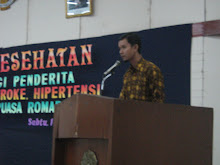
A Muslim may be devoted, liberal or secular; assess carefully how religiously devoted your patient is. Health professionals are also human and may have negative feelings about Muslims. Referral to another doctor will sometimes help both parties; take it or leave it, but do not proceed half-heartedly. Communication with the patient begins with respecting names. Even if they do not show it, many will be upset if you write Muslim as Moslem and Quran as Koran, if you use initials instead of full first and middle names (because these have religious connotations) and if you ask ‘what is your Christian name?’. These cultural issues, and the minutiae of diabetes management, have been discussed elsewhere. Here are ten practical points.
- Ramadan fasting improves diabetes by lowering the blood glucose and HbA1c because of fewer post-prandial peaks. Adjust medication if necessary
- Meditation and prayers tend to lower blood pressure. Adjust the dosage of antihypertensive drugs in a hypertensive patient
- Pork and non-halal meat are absolute taboos in Islam. Thus pork insulins, pork-based synthetic insulins, and beef (non-halal) insulins are unacceptable to devoted Muslims. Non-porcine synthetic (human) insulin should be given in preference. If a forbidden insulin is the only choice, a religious leader or doctor should be encouraged to mediate and reduce the patient's guilt feeling and spiritual pain. These advisers would use the doctrine of ‘the sanctity of life’, permissible in Islam. It means that life must be saved at all cost
- ‘Human insulin’ may be misunderstood by the patient as signifying manufacture from human flesh or pancreas, leading to non-compliance. Some non-westernized Asian and African Muslims do not understand diabetes as western people do. Explain that ‘human’ simply means ‘akin to human’
- In Ramadan, a person with type 2 diabetes can take a sulphonylurea at the end of the fast, with the evening meal started within 30 minutes. Advise not to miss the sehri (before sunrise) meal so as to avoid hypoglycaemia later in the day. Repaglinide (NovoNorm) can be particularly useful, since it need only be taken when a meal is eaten, therefore no change in drug therapy will be required in Ramadan. A meal must be eaten within 15 minutes
- The patient may concurrently be taking alternative medicine from a hakim (a Muslim healer) e.g. karela powder (an oral hypoglycaemic). Ask the patient, and adjust medication or advise accordingly
- Glycaemic foods should be taken into account. Muslim sweets taken in Ramadan, khir (rice pudding) and vermicelli are sugary and may necessitate a change in drug therapy. Savoury foods such as karela (a vegetable), onion and garlic are hypoglycaemic. Again, adjustment of medication or dietary tips may be needed
- Medical advice is sometimes ignored for religious reasons. Occasionally a devoted Muslim will say, ‘Allah will protect me’. He or she may not fear death or may even want to die so as to meet the Creator. Counsel the patient by saying ‘to see the doctor and comply with treatment is Prophet Mohammad's sunnat (precedent)’. To refuse would be a sin
- Article 9 of the 1998 Human Rights Act, which came into force on 2 October 2000, requires freedom of thought, conscience and religion. This has been incorporated in English and Scottish law and all general practitioners and hospital doctors are bound by it.
I hope that general practices and hospital clinics will use these notes as a starting point for drawing up guidelines according to local needs and circumstances (http://www.pubmedcentral.nih.gov).

No comments:
Post a Comment